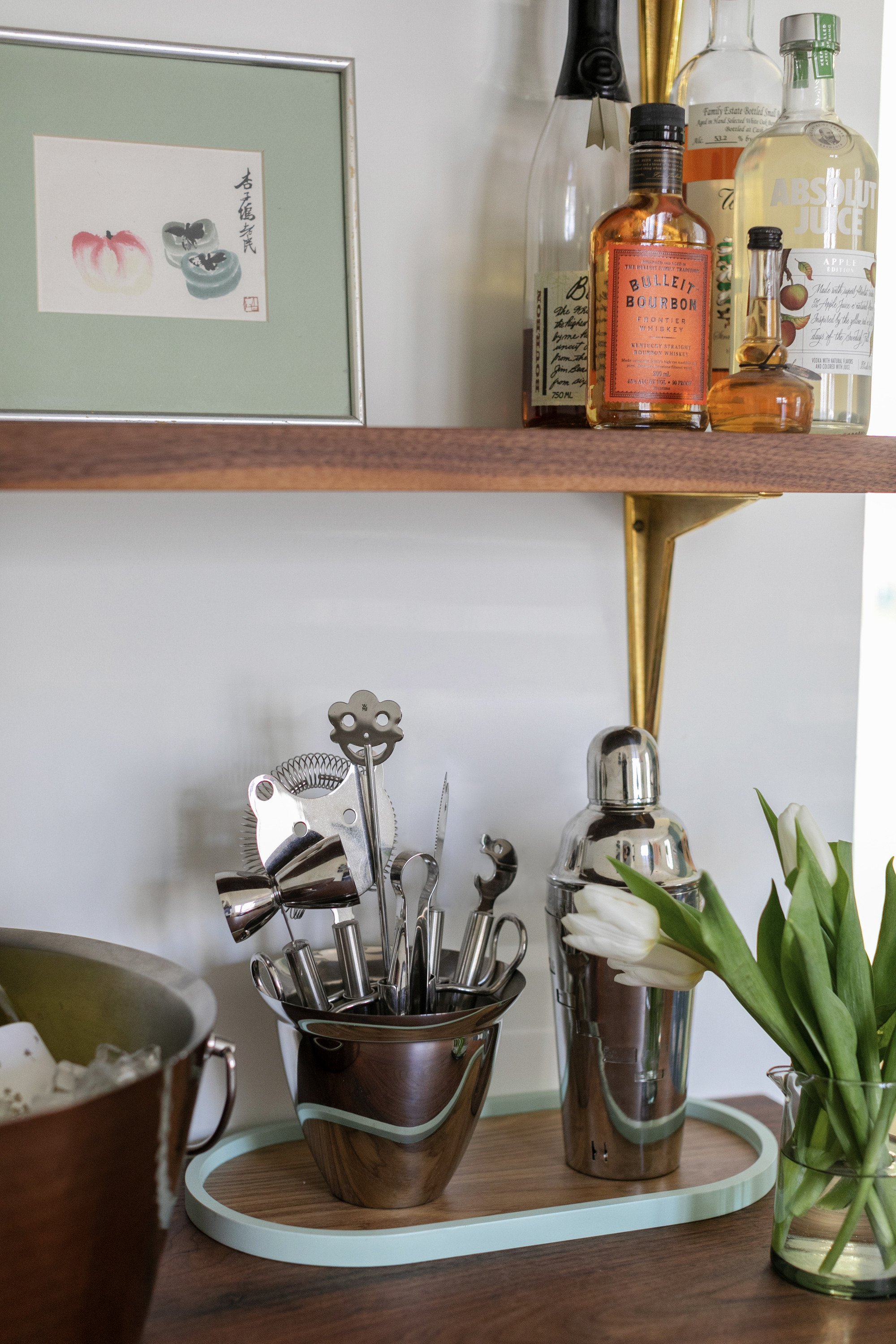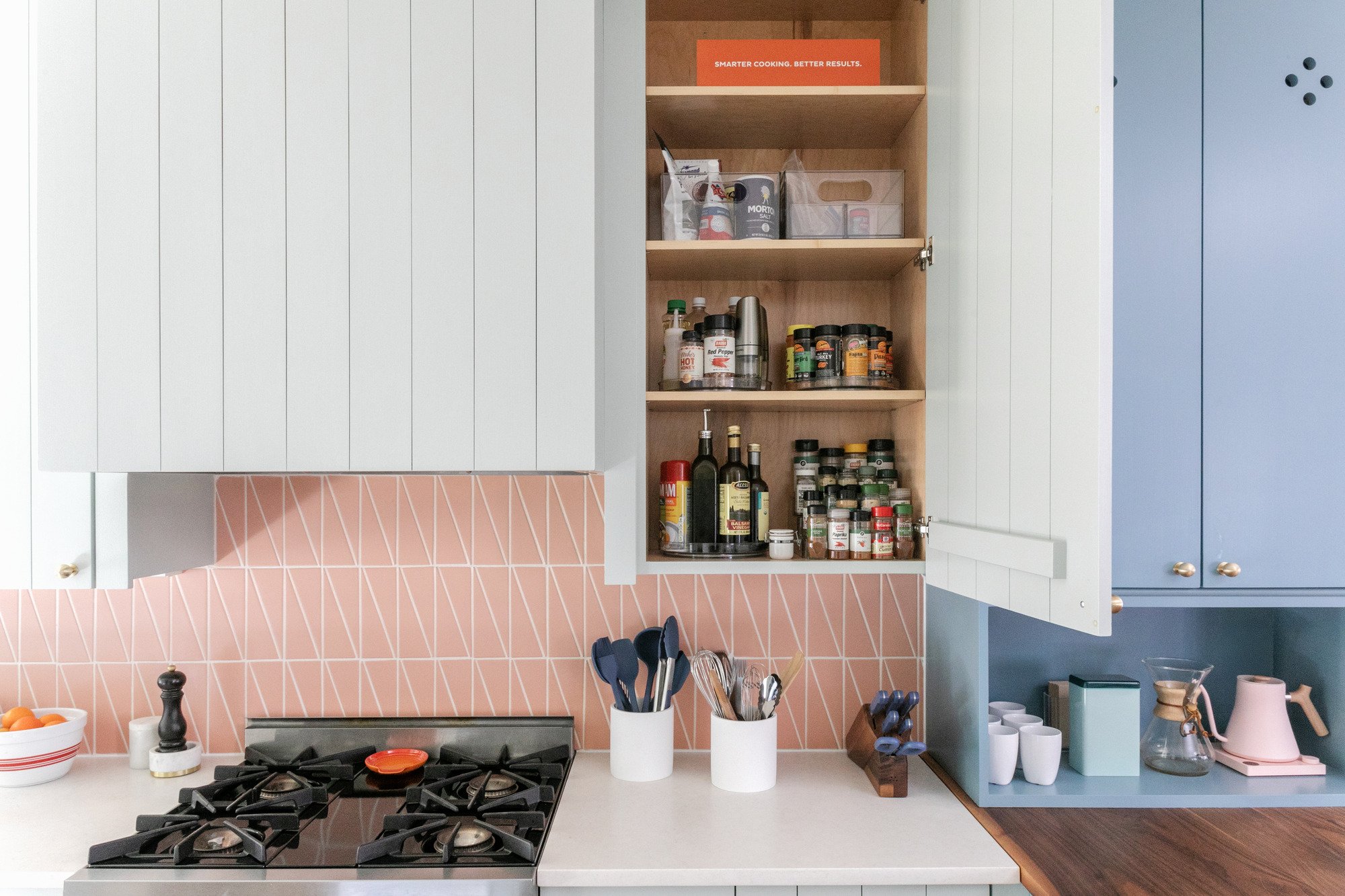The New Home Organization Trend: “Editing” – Is There a Difference Between Editing and Decluttering Your Space?
In the world of home organization, the term "edit" has become the latest buzzword. You’ve probably heard it on home makeover shows, across social media, or from professional organizers. But what does it really mean to “edit” your space, and how does it differ from good old-fashioned decluttering?
Here in Atlanta, home organizing comes with its own unique challenges. Unlike colder climates, where seasonal storage is a major concern, Atlanta’s mild winters mean bulky coats and heavy outerwear don’t take up as much space. Instead, the focus is on maximizing everyday living areas—creating efficient drop zones for busy families, functional storage spaces, and clutter-free entryways that keep up with faster-paced lifestyles. Whether you’re in a historic bungalow with limited closets or a modern home in need of better systems, editing is all about refining your space to make it work better for you.
At its core, editing is just a more refined way of talking about decluttering. Both involve sorting through your belongings, letting go of what no longer serves you, and making space for what truly matters. The goal remains the same: a home that feels lighter, more intentional, and easier to live in.
So why the shift in language around home organization?
The Mindset Shift
The term "edit" carries a more thoughtful, curated vibe. It's borrowed from the creative world, where writers, designers, and photographers "edit" their work to ensure only the best remains. This subtle difference in wording can shift how we approach the task of decluttering. Instead of focusing on what we're losing or tossing out, editing suggests we're refining or perfecting our space. It's about making choices based on what fits our current lifestyle, much like a designer would edit a collection to make sure every piece adds value.
"Editing" feels less harsh than "decluttering." It implies we're making thoughtful decisions about what belongs in our home, rather than simply discarding items. It's about curating a space, keeping what works, and adjusting as needed to fit the way we live now.
Is There Really a Difference?
Although "edit" and "declutter" are often used interchangeably, editing has a slightly different connotation. Decluttering is about clearing out the excess—getting rid of the old, the broken, or the unused. Editing, on the other hand, is a more selective process. You're not just purging but carefully choosing what stays to create a cohesive, balanced space.
Think of it like this: You might "edit" your wardrobe, but you'd declutter your clothing drawers. Decluttering would be getting rid of the tank tops you never wear, while editing would be making sure your drawer system only contains one type of clothing per drawer to make daily dressing more intuitive.
When to Edit vs. Declutter Your Home
You might choose to declutter after a big life transition—like moving, downsizing, or when you're simply in need of a fresh start. Decluttering is all about resetting and lightening your load, removing items that no longer serve a purpose in your life.
Editing, on the other hand, is a term you'd use when refining an already organized space. Maybe you're making small adjustments to better reflect your current needs or aesthetic. Editing is about fine-tuning a space, making it work even better for you.
Example of Editing: Reorganizing a Pantry
When editing your pantry, you're shifting items around to make the things you use most often more accessible. Maybe you're swapping out mismatched containers for more cohesive storage solutions, or you're consolidating similar ingredients into a more efficient system. You're not necessarily throwing anything away—you're just making small adjustments that make your space more functional and visually appealing.
Example of Decluttering: Clearing Out Your Home Office
Decluttering applies to any space that has become overcrowded or inefficient. A great example of decluttering is tackling your home office. Over time, papers pile up, old electronics collect dust, and office supplies accumulate. Decluttering your workspace means sorting through outdated paperwork, recycling or shredding unnecessary documents, donating extra office supplies, and getting rid of broken or unused tech. By clearing out the excess, you create a workspace that feels lighter, more productive, and less chaotic. Think how great you will feel after finally saying goodbye to the land of misfit wires and cords that you’ve been hanging on to “just in case.”
Home Organization Examples of Editing vs. Decluttering: Closet Edition
Let’s take a closer look at when you'd edit a closet and when you'd declutter it.
Editing a Closet
You'd edit your closet when it’s already in pretty good shape but could use some adjustments to improve functionality or aesthetics. For example, you might reorganize your clothes by color or season, swap out mismatched hangers for uniform ones, or relocate your accessories for easier access. Editing is all about refining what’s already there, creating a more streamlined system to make the space more efficient—perhaps rearranging items so they align better with your daily routine, or adding some bins or baskets to keep things tidier.
Decluttering a Closet
On the flip side, you'd declutter a closet when it’s overflowing with items you no longer need or use. Decluttering involves going through everything in your closet and removing things that are worn out, don’t fit, or no longer match your style. It's about making space by getting rid of what no longer serves you, whether it's clothes, shoes, or accessories. After decluttering, you'll have room to organize the things you truly use and love.
Why I Use the Word "Edit" with Clients
As a professional organizer, I love the concept of "editing" because it feels more like fine-tuning rather than a drastic clean-out. Editing allows you to keep the things that matter, while still making room for intentional improvements. It encourages clients to look at their spaces from a place of abundance—focusing on what adds value to their lives, instead of just what they can get rid of.
3 Examples of Editing Your Space That I Love
Curating Bookshelves: Reducing the number of books and decorative items on your shelves can create a cleaner, more intentional look. Display only your favorite pieces or most-used books, creating a space that’s both functional and reflective of your personality.
Using Containers and Baskets in the Kitchen: Organizing pantry staples, snacks, or utensils into clear bins or labeled baskets helps streamline your kitchen and gives it a more cohesive, polished feel. It's a simple edit that makes a big impact.
Creating Drop Zones for Shoes, Mail, and Jackets: Designating a spot for high-traffic items like shoes, mail, and jackets keeps everyday clutter at bay. This small adjustment helps your space stay tidy and organized, making your home feel tidier and more functional.
3 Examples of Decluttering That Make Your Home Feel Lighter and More Functional
Clearing Out Closets and Swapping Out Seasonal Clothes: Going through your wardrobe and getting rid of what no longer fits or is out of season helps streamline your closet, making getting dressed easier.
Donating Unused Items from the Garage or Basement: Sorting through old sports gear, holiday decorations, or tools can free up valuable storage space. Plus, donating items that are still in good condition helps others while making your home feel less cluttered.
Removing Duplicates from the Kitchen: Do you really need three sets of measuring spoons or five ladles? Sorting through your kitchen drawers and getting rid of unnecessary duplicates simplifies your cooking space and makes it easier to find what you need.
In the End: Editing or Decluttering?
Whether you call it editing or decluttering, the end goal is the same—creating a space that feels intentional, peaceful, and functional. "Editing" just adds a fresh perspective, focusing on curation rather than elimination. Whichever term resonates more with you, the key is to design a home that works for your life, helping you live with more ease and clarity.
So, next time you’re tackling a closet, kitchen, or garage, ask yourself: Are you decluttering to reset and make space, or are you editing to refine and improve? Either way, you’re moving toward a more organized and peaceful home.
If you're in Atlanta and need places to donate or consign your items, we've got you covered! Check out our resources page for local donation centers, consignment shops, and sustainable ways to give your belongings a second life.



